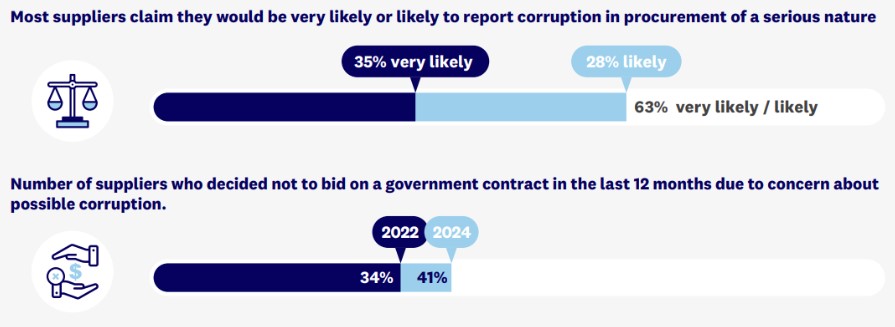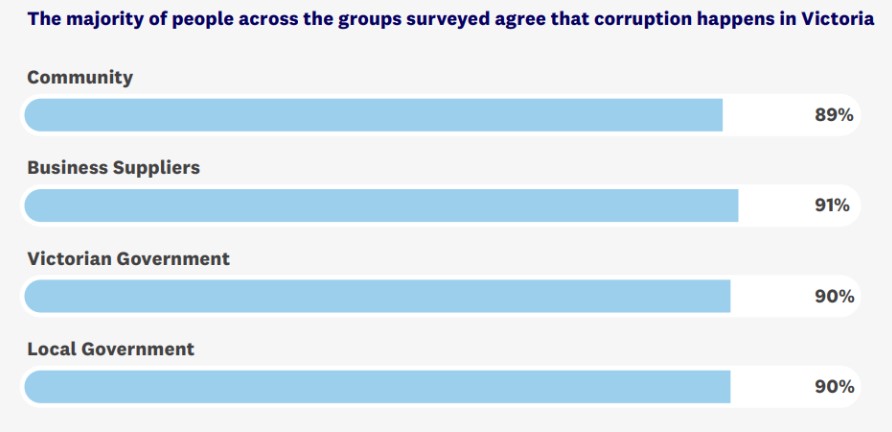Victoria perceived as a corrupt state
Three-quarters of Victorian government employees consider their organisation to be vulnerable to corruption, a survey reveals.
That was one of the findings contained in the latest Perceptions of corruption survey conducted by the Independent Broad-based Anti-Corruption Commission, a body that seeks to expose public sector corruption and police misconduct in Victoria.
Surveying more than 9,000 people – including state and local government workers – the survey also showed that, across sectors, the majority of people surveyed agree that corruption occurs in Victoria.
Among business suppliers to government, most said (63%) they would be likely to report procurement corruption. Meanwhile, 41% said they have decided not to bid on a government contract during the past 12 months due to concerns about possible corruption, an increase from 34% in 2022.
 The survey also showed an increasing opinion that corruption in the workplace was rife, with people citing breaches of professional boundaries, inaction, favouritism or nepotism as causes for concern.
The survey also showed an increasing opinion that corruption in the workplace was rife, with people citing breaches of professional boundaries, inaction, favouritism or nepotism as causes for concern.
IBAC deputy commissioner David Wolf said the findings made evident Victoria is perceived as a corrupt state but hoped the data would help drive initiatives for change.
“While it’s clear that there’s a widespread opinion of corruption and an increasing belief that it’s a problem in Victoria, there is an opportunity for public sector agencies, local councils and Victoria Police to address corruption risks and vulnerabilities and enhance their own approach to corruption prevention.”
Wolf added: “The findings should help agencies identify gaps and opportunities to address perceived weakening ethical cultures across different sectors, as well as enhance their prevention and education efforts.”
An area where IBAC would like to see improvement is in the reporting of corruption or misconduct. “Results showed that across all survey groups, participants exhibited strong intentions to report corruption and misconduct but lacked the confidence to do so,” Wolf said.
The survey also shows uncertainty around the likely outcomes from making a report, and adequate protections for whistleblowers.
“This tells us that these areas should be a priority for support and education so that anyone who suspects corruption or misconduct feels confident to report it and that it will be taken seriously,” Wolf said.
Full article can be seen here in Government News, 7 October 2024.
